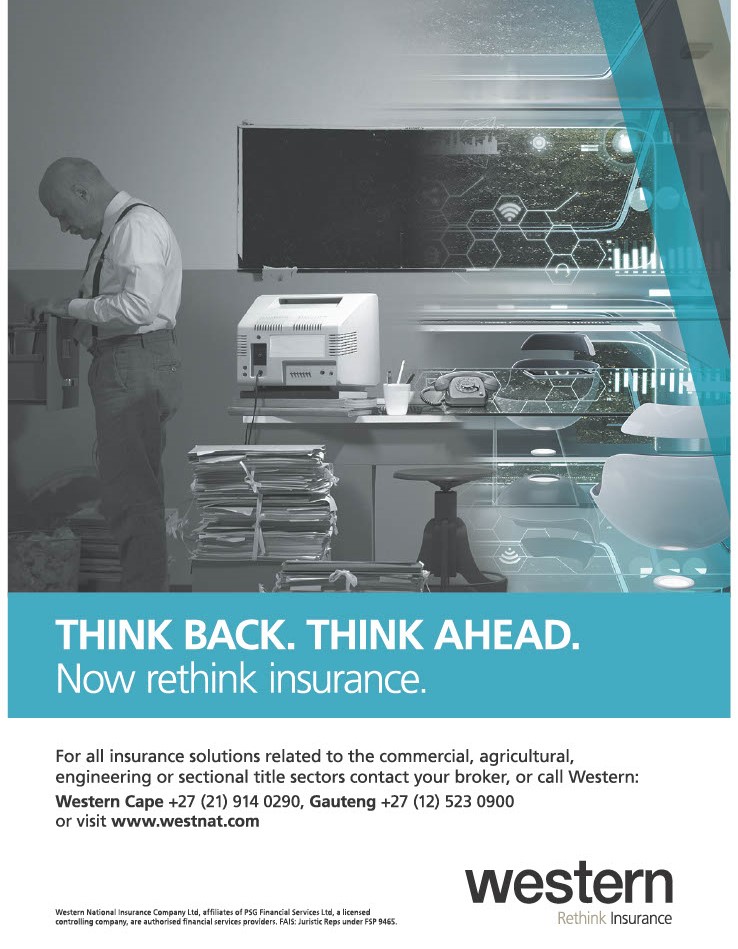Tony van Niekerk in conversation with Jan-Hendrik Botha, Head of Underwriting at Western National Insurance

As climate volatility and operational shifts reshape the agricultural landscape, insurance for farmers is no longer a straightforward proposition.
In a recent MindShift podcast conversation, I spoke with Jan-Hendrik Botha, Head of Underwriting at Western National Insurance, to unpack the evolving risks in the Agri sector, and the growing responsibility brokers have in guiding farmers through it.
We kicked off the discussion against the backdrop of recent extreme weather across the Western Cape, snow, floods, high winds, highlighting just how complex the risk environment has become. But beneath those immediate concerns lies a deeper trend: the transformation of farming and its practices.
Farming is not static, and insurance shouldn’t be either, “People think farming is static,” Jan-Hendrik said. “But that’s far from the truth.”
Farmers are diversifying like never before, moving beyond primary production into processing, packaging, cold storage, bottling, and even solar energy. These operational shifts bring not only new income streams but also new and often unidentified and unreported risk exposures.
“A standard farm policy may not take into account new structures such as abattoirs or bottling plants,” explained Jan-Hendrik. “additions such as these introduce fire hazards, liability exposures, and additional regulatory compliance requirements.”
Undisclosed potential risk changes, he warns, could lead to underinsurance or policy exclusion. “Full transparency is crucial. If a farmer fails to inform their broker, they may find themselves without cover or inadequately covered when disaster strikes.”
THINK BACK. THINK AHEAD. Now rethink insurance.
For all insurance solutions related to the commercial, agricultural, engineering or sectional title sectors contact your broker, or call Western: Western Cape +27 (21) 914 0290, Gauteng +27 (12) 523 0900
or visit www.westnat.com
Western National Insurance Company Ltd, affiliates of PSG Financial Services Ltd, a licensed controlling company, are authorised financial services providers. FAIS: Juristic Reps under FSP 9465.
The growing risk of third-party agreements – Another often-overlooked issue relates to the involvement of a third-party . Leasing agreements, joint ventures, and contracting arrangements can fundamentally impact liability in ways the farmer may not anticipate.
“Policies are tailored around the insured’s business,” said Jan-Hendrik. “Introduce a third party and suddenly, you’re dealing with foreign risks. A tenant may cause a fire. A contractor may use the farmer’s equipment off-site and trigger a liability incident. Without disclosure, there would be no cover.”
He cited the example of a farmer contracted to carry out harvesting activities using their harvester on a neighbouring farm. Should a fire break out as a result of the contracted activities resulting in damage to the neighbouring farms crops or property, the policy, may not respond as these activities were not declared on the contracting farmers policy. Proper disclosure ensures the addition of appropriate policy extensions and liability cover.
Solar, cold storage, and new risk profiles – As energy independence becomes more important, many farmers are investing in solar infrastructure. At the same time, cold storage facilities are becoming common for those diversifying into produce packaging or long-term storage.
“These additions are not standard structures in terms of the policy definitions,” Jan-Hendrik emphasised. “They bring a different risk profile, and insurers need detail to understand the exposure such as location of the installation, how they’re used, and whether they meet regulatory standards.”
He warned that simply increasing the asset value on a policy is not enough. “A farmer who installs a cold storage unit or solar application and just increases the sum insured without providing proper detail, may face potential claim repudiation.”
Notably, cold storage brings regulatory heat resistance requirements, if not met and disclosed, a fire claim may be denied. Similarly, solar plants have unique installation and material requirements that affect risk underwriting.
Brokers: The vital link in the Agri chain – So where does this leave the broker?
“Brokers are crucial in closing the knowledge and compliance gap,” Jan-Hendrik said. “Especially in Agri, where the risks are diverse and evolving.”
He emphasised that brokers should not only conduct regular policy reviews but also strive to be part of their clients’ businesses. “Be present in the planning stages of upgrades and expansions,” he advised. “That’s when brokers can add real value.”
Good brokers, he said, go beyond quoting and policy updates, they translate technical wording into practical, understandable advice for the farmer.
“They should also stay up to date with regulatory and safety standards,” Jan-Hendrik added. “For instance, with cold storage, brokers need to understand SANS regulations to guide their clients.”
The danger of unintentional non-disclosure – Unreported changes can have ripple effects far beyond a single claim. A rejected claim could lead to:
- Higher future premiums
- Reduced cover or new exclusions
- Policy cancellation
- Financing complications (as loans are often tied to insured assets)
- A black mark on claims history affecting future insurer relationships
Even if the non-disclosure was unintentional, the consequences are real, and severe.
A Call to proactive engagement – Jan-Hendrik closed with a call to action for brokers: stay engaged, educate clients, and build long-term, transparent relationships.
“Help farmers understand the value of disclosure. Be involved early. And most importantly, communicate in plain language so they fully grasp their risks.”
This advisory role is not only vital for ensuring adequate cover, it also builds trust, fosters sustainable farming operations, and ensures insurers can underwrite effectively.
As South Africa’s farming sector becomes more dynamic and climate events more unpredictable, the Agri insurance space is evolving in tandem. The modern farmer is no longer just growing crops, they’re running multi-faceted agribusinesses. In this context, the broker is more than an intermediary, they are a risk strategist, a compliance coach, and a key ally in protecting one of the country’s most critical sectors.


